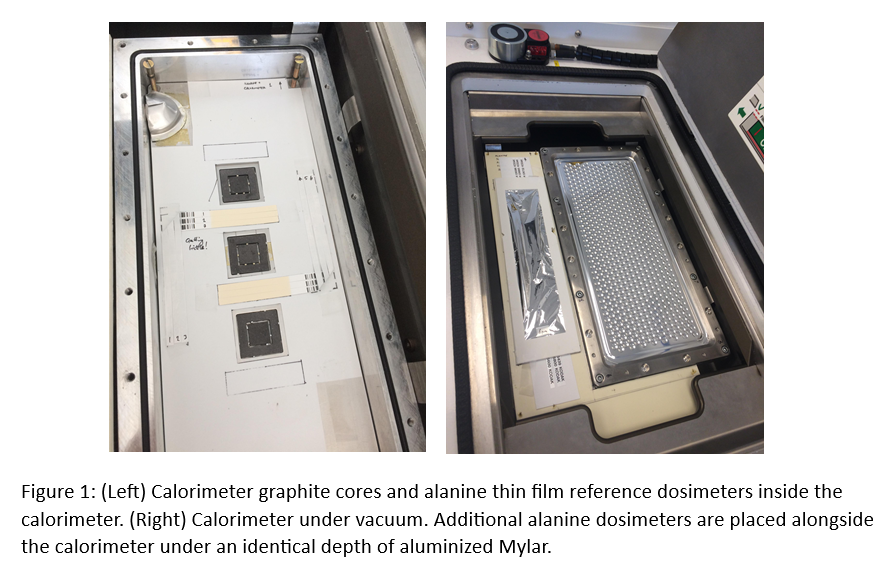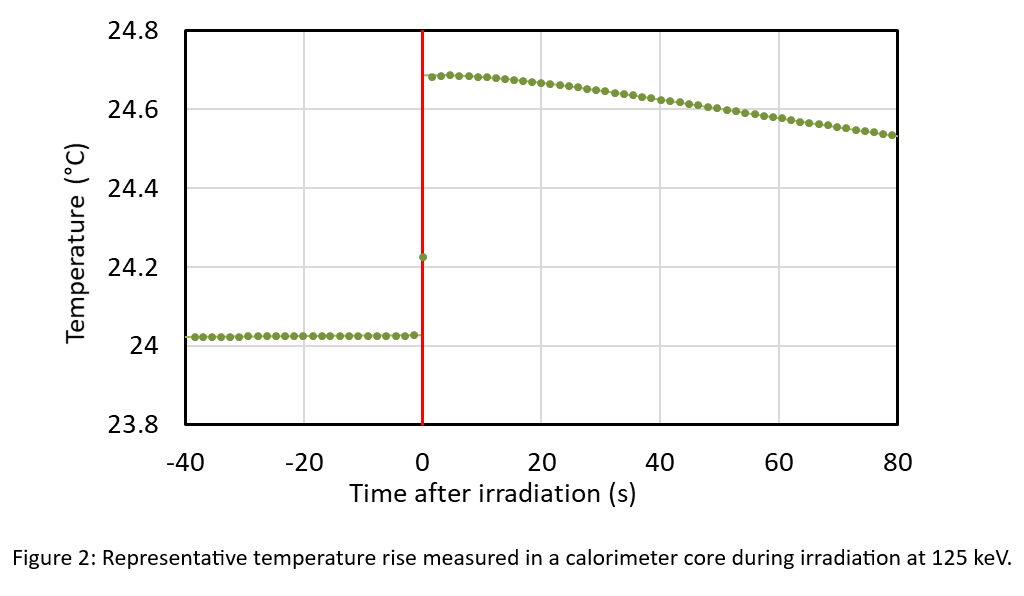Calorimetry for low-energy electron beam dosimetry with significantly reduced measurement uncertainty
Mark Bailey1, Christina Ankjærgaard1, Arne Miller1, Sebastian E Galer2, Peter HG Sharpe2.
1Risø HDRL, DTU Health Technology, Roskilde, Denmark; 2Radiation Dosimetry, National Physical laboratory, London, United Kingdom
Introduction
Dosimetry for low-energy electron beam dosimetry in regulated applications requires traceability to national standards with a known level of uncertainty. The dose to water Dµ in the first micrometer of material [1] together with knowledge of the depth-dose gradient through the irradiated dosimeters provides this. Currently the uncertainty for Dµ at coverage factor k = 2 exceeds 10 %. This significantly restricts process capability in systems requiring low-energy e-beam dose measurements, e.g. aseptic pharmaceutical syringe filling lines or in the manufacture of drinks cartons. To address this, a new calorimeter with a significantly enhanced reproducibility has been developed.
Body
The calorimeter consists of three graphite cores and alanine thin film dosimeters inside a vacuum chamber with a 2 µm thick aluminized Mylar heat shield and is designed for use in electron beams between 80 and 150 keV to measure absorbed dose. Corrections are applied for heat transfers and geometric effects, leading to a calorimeter response reproducibility of approximately 1 %.


Conclusion
Measurements using the new calorimeter with alanine thin-film reference dosimeters provide a significantly reduced total uncertainty of approximately 5.6 % at k = 2 compared with the 10.7 % currently used. Work is planned to further optimize the reproducibility and establish the calorimeter as a primary measurement standard.
References
1: Helt-Hansen, J., Miller, A., Sharpe, P., 2005. Dose response of thin-film dosimeters irradiated with 80-120 keV electrons. Rad. Phys. Chem. 74, 341-353.
2: Helt-Hansen, J., Miller, A., Duane, S., Sharpe, P., Clausen, S, 2005. Calorimetry for dose measurement at electron accelerators in the 80 – 120 keV energy range. Rad. Phys. Chem. 74, 354-371.